Kharkiv teens navigate life and remote learning amidst Russia’s war against Ukraine
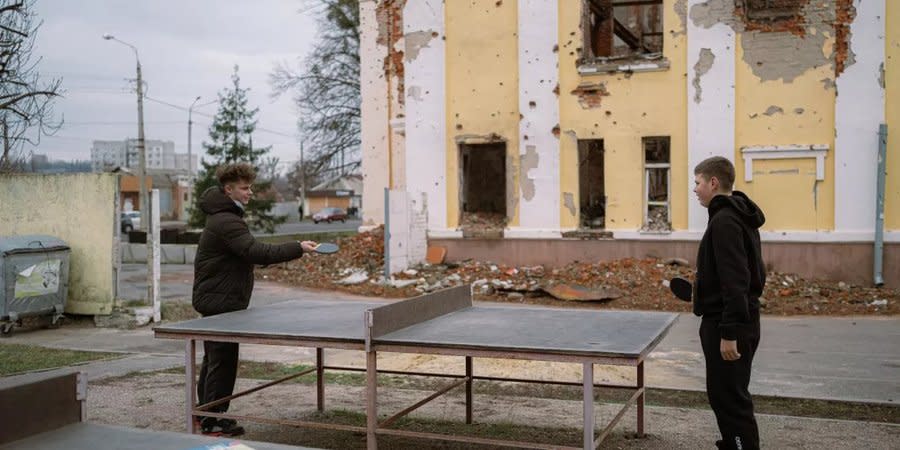
Stepan (15) and Yaroslav (16), both teenagers from Kharkiv, wake up to the relentless sounds of Russian shelling, a routine that began after their school was destroyed at the start of Russia’s full-scale invasion. UNICEF Ukraine told their stories on Feb. 19.
As classmates in the tenth grade, they've been studying remotely for two years now. Stepan finds online lessons difficult. The boy says that it is not so easy for him to learn the material and he is worried about his future.
Read also: Russia establishing military camps to indoctrinate, later conscript, Ukrainian children – NRC
“My grades have gotten worse,” the boy said.
“English and German are the hardest: online explanations from teachers are not always clear, and you can't talk to classmates. I'm afraid that because of the gaps in my education, I won't be able to pass the exams to enroll in the university.”
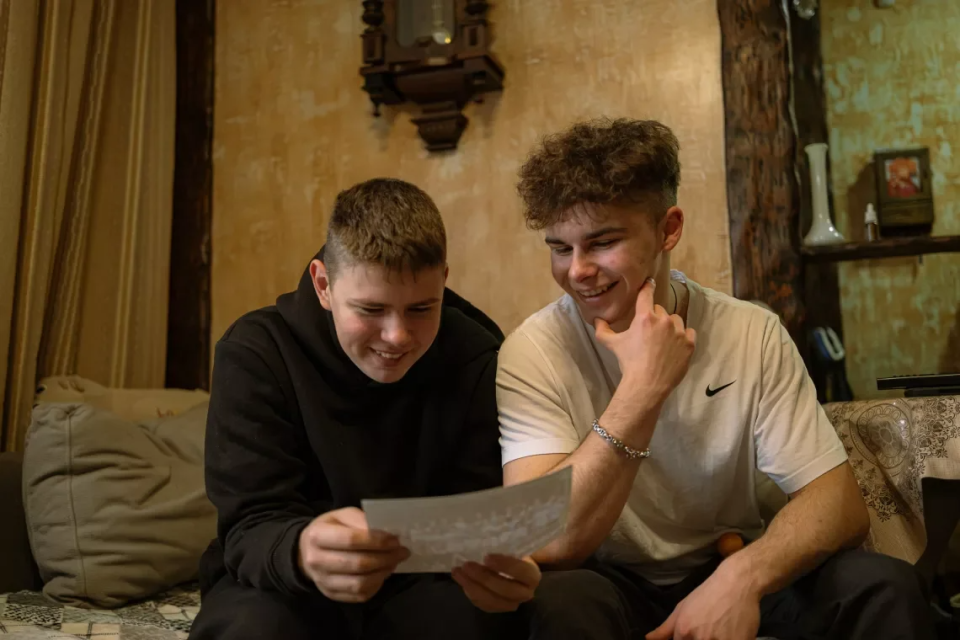
In a year, the boys must choose a university and profession. Stepan dreams of becoming an entrepreneur like his father, but uncertainties linger. Yaroslav, on the other hand, aspires to study rehabilitation massage.
“In a year, when I finish 11th grade, I plan to study to be a massage therapist-rehabilitologist,” he said.
“After the end of the war, there will be many veterans who will need to recover their health. I want to be useful."
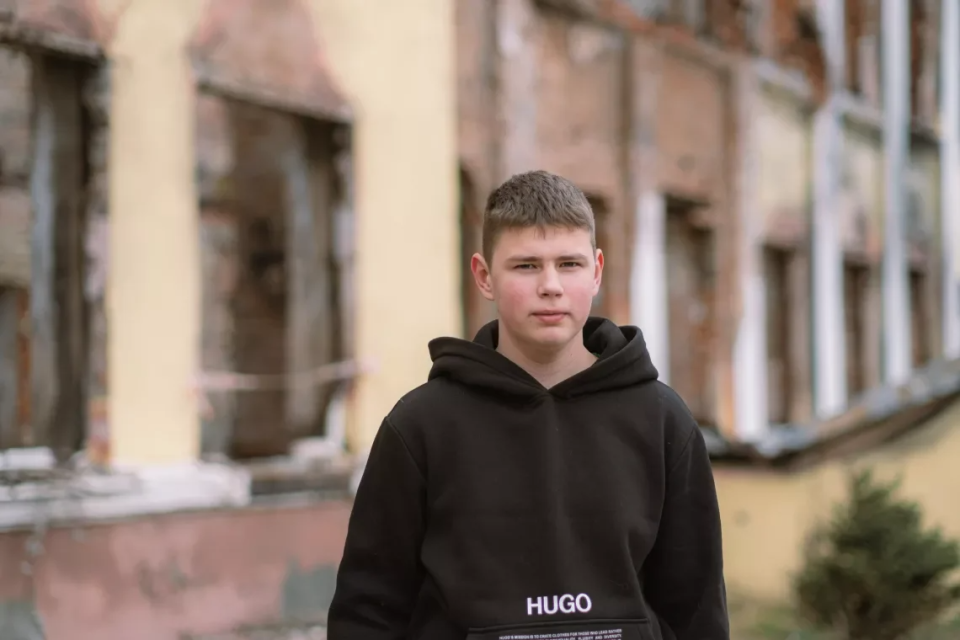
The boys believe that distance learning is of lower quality than face-to-face learning. Children lack control and discipline. War-related disruptions, including constant alerts, shelling, power outages, and stress, further complicate their educational experience.
Read also: Teen who fled Donbas war in 2014 finds refuge in Odesa as full-scale invasion strikes Ukraine
“I would like to go back to school,” Stepan admitted.
“But if I go to school, there is a chance that a rocket will hit it, like our previous school. This is a risk that we always think about.”
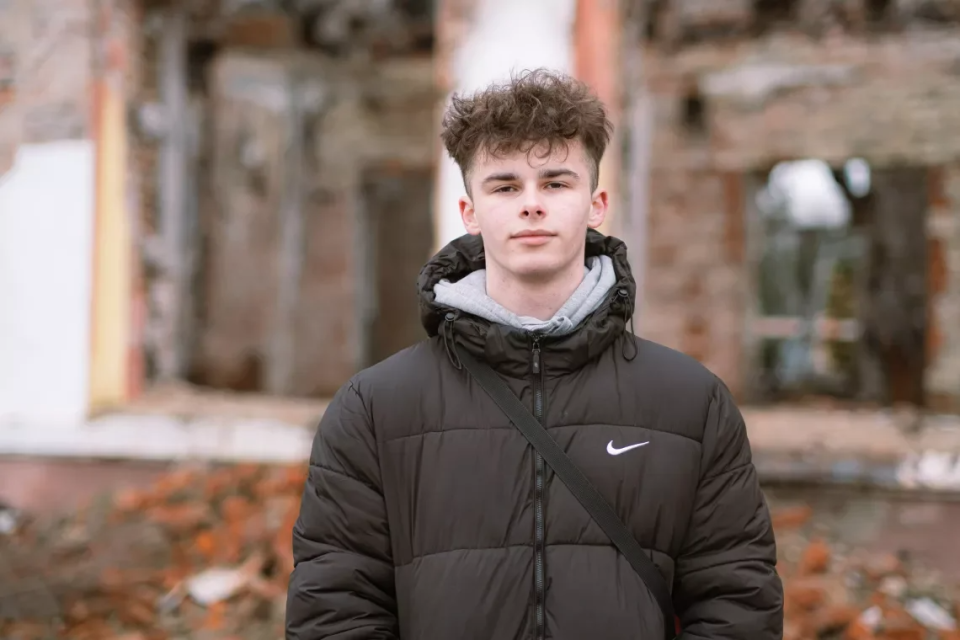
Before Russia’s full-scale invasion, the boys participated in various sports, which stopped after Feb. 24, 2022.
“I don’t want to fall asleep and wake up to the sound of an air raid siren, I’m scared,” Yaroslav said.
“Most of all, I dream of the war ending and being able to live as before — in joy and without fear.”
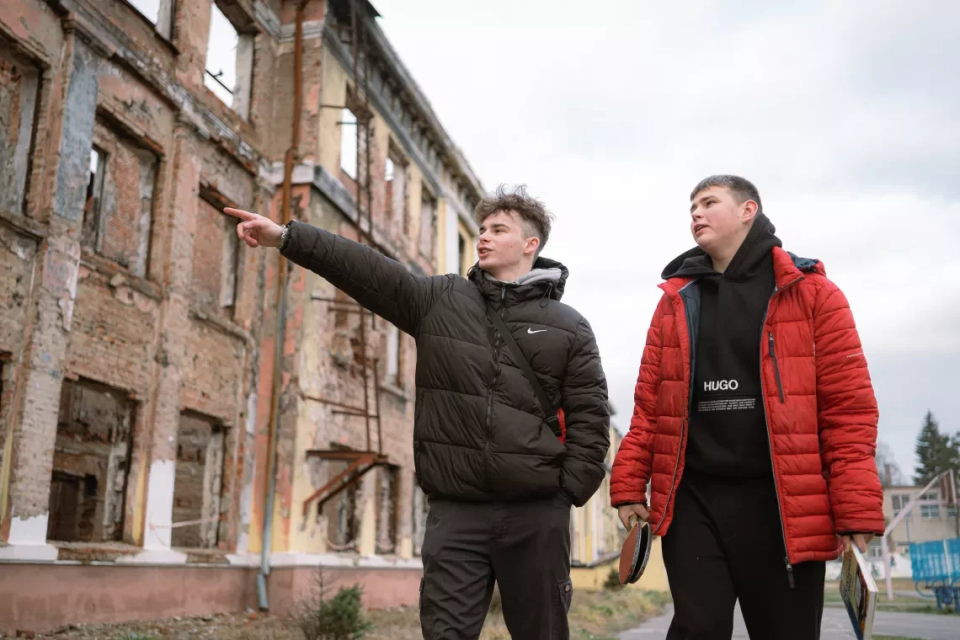
While the teens acknowledge their fortune in having been able to engage in face-to-face education, they sadly recognize that younger students are missing crucial stages of childhood due to the pandemic and the full-scale invasion.
About 5.3 million children in Ukraine have faced educational losses due to limited access to face-to-face learning, UNICEF Ukraine reported. More than 7,000 Ukrainian schools remain inaccessible to children: some are closed due to security risks, some have been damaged or destroyed, and others have switched to remote learning.
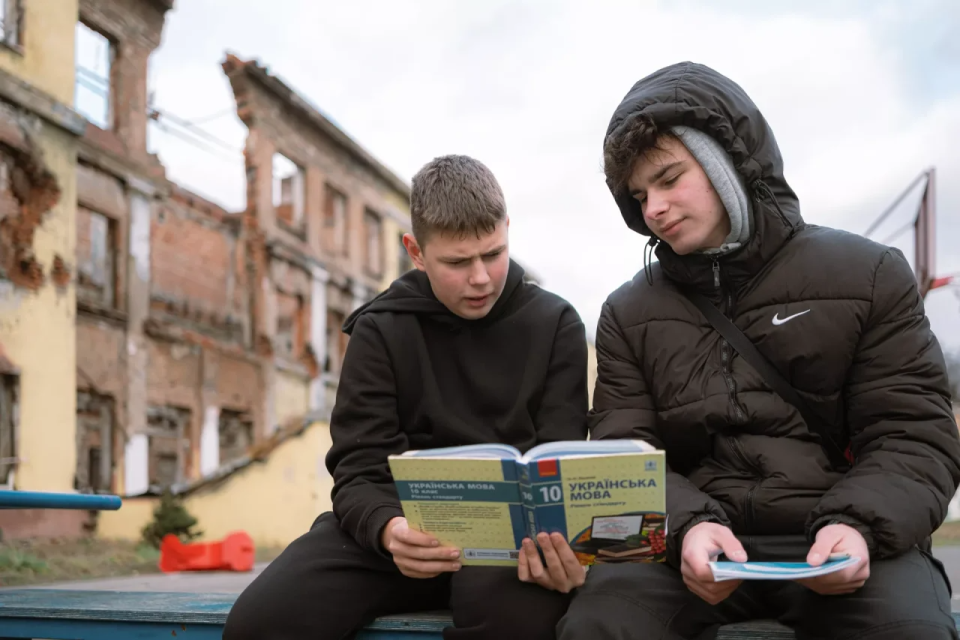
We’re bringing the voice of Ukraine to the world. Support us with a one-time donation, or become a Patron!
Read the original article on The New Voice of Ukraine

